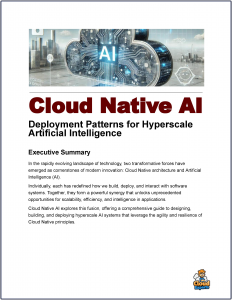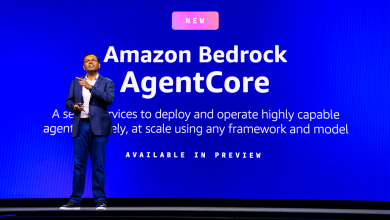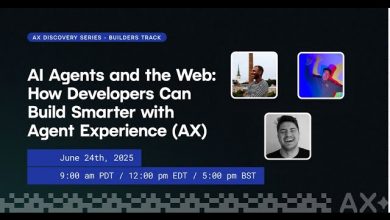DigitalOcean: Empowering Developers to Rapidly Build Cloud Native AI Applications
By integrating LLMs from providers such as OpenAI, Anthropic, Meta, and Mistral, the DO platform empowers developers, data scientists, and businesses to build intelligent AI agents without the burden of managing complex infrastructure.
 The DigitalOcean GradientAI Platform is a fully managed, developer-centric AI solution designed to simplify the creation, deployment, and scaling of AI-powered applications, particularly for digital native enterprises.
The DigitalOcean GradientAI Platform is a fully managed, developer-centric AI solution designed to simplify the creation, deployment, and scaling of AI-powered applications, particularly for digital native enterprises.
By integrating state-of-the-art large language models (LLMs) from providers such as OpenAI, Anthropic, Meta, and Mistral, the platform empowers developers, data scientists, and businesses to build intelligent AI agents without the burden of managing complex infrastructure.
Unlike platforms like Kubeflow Pipelines, which require hands-on management of machine learning workflows on Kubernetes, GradientAI abstracts these complexities, offering a streamlined experience through intuitive workflows, no-code templates, and flexible SDKs, making it accessible to users with varying levels of expertise.
Building AI Agents
At its core, the GradientAI Platform enables users to create and customize AI agents for a wide range of applications, from chatbots and customer support tools to data analysis and workflow automation. It supports advanced features like Retrieval-Augmented Generation (RAG), allowing agents to leverage custom data from sources like documents, APIs, or databases to deliver context-aware responses.
For example, a travel app could use RAG to generate personalized itineraries, or a customer support system could reference internal documentation. The platform also includes function routing, enabling agents to call external APIs for real-time data, such as flight schedules, and agent routing to connect multiple agents for task-specific responses, enhancing flexibility and precision in handling complex queries.
The platform’s serverless inference capability provides unified access to LLMs like GPT-4o, Claude 3.7 Sonnet, and LLaMA 3.3 Instruct-70B through a single API, eliminating the need to manage multiple API keys or infrastructure.
This feature, combined with usage-based billing and automatic scaling, ensures cost efficiency and adaptability for applications like text generation, summarization, or multimodal processing involving text, images, and audio. Additionally, GradientAI emphasizes safety through LLM guardrails, which prevent harmful, biased, or off-topic outputs, ensuring compliance and reliable performance for user-facing applications.
Observability and evaluation are integral to the platform, with tools like customizable agent evaluations to measure performance metrics such as response quality, safety, and accuracy. Traceability features expose reasoning chains, inputs, outputs, and function calls, aiding debugging and transparency, while conversation logs (currently in preview) allow analysis of real user interactions to refine agent behavior.
Scaling LLMs on K8s
The platform seamlessly integrates with DigitalOcean’s GPU cloud, including NVIDIA H100, AMD MI325X, and RTX 4000/6000 Ada GPUs, supporting training, fine-tuning, and inference for compute-intensive tasks. It also offers 1-Click Models for deploying preconfigured LLMs on GPU Droplets, minimizing setup time.
In the context of Cloud Native technologies, GradientAI leverages DigitalOcean Kubernetes (DOKS) under the hood to orchestrate containerized workloads, ensuring scalability and resilience without requiring users to manage Kubernetes directly. This contrasts with Kubeflow Pipelines, which demands expertise in Kubernetes and ML workflow orchestration.
By comparison, GradientAI’s managed approach aligns with the needs of organizations seeking to replicate the capabilities of AI leaders like OpenAI and Anthropic, who provide foundational models like GPT-4o and Claude. GradientAI integrates these models directly, offering a unified platform with added features like RAG, guardrails, and evaluations, simplifying the development of production-ready AI applications.
The platform supports diverse use cases, including conversational agents for customer support, automated data analysis for market trends or cybersecurity, and multimodal AI for applications like content moderation or voice assistants. It caters to developers, startups, small businesses, and hobbyists by providing cost-effective, scalable infrastructure with transparent pricing.
Backed by DigitalOcean’s robust GPU infrastructure and a focus on developer experience, the GradientAI Platform democratizes AI development, enabling users to build sophisticated applications without the resources of industry giants.



